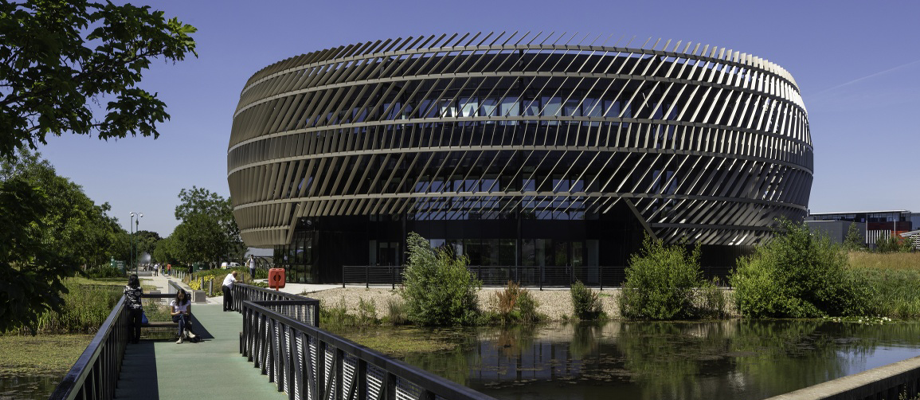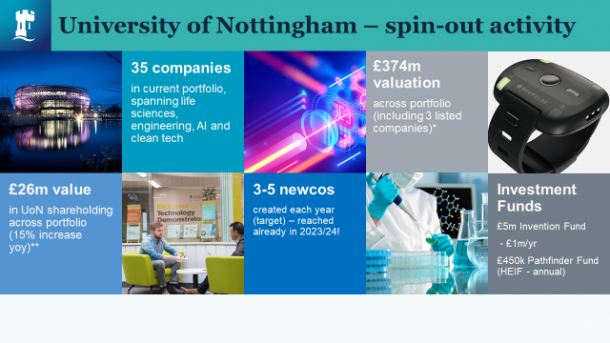
University leads the way in enterprise and innovation
May 28th, 2024
The University of Nottingham has a well-earned global reputation for the real-world impact of its research. From playing a central role 50 years ago in the invention of Magnetic Resonance Imaging (MRI), right up to current trials of pioneering wearable tech that could change the lives of people with neurological disorders, it’s hard to overstate the impact of Nottingham’s achievements.
But how many of us are aware of how the ideas, complex scientific theories and revolutionary medical discoveries that blossom from the minds of our researchers and academics turn into tangible, real-world impact?
What might seem ground-breaking on paper or show signs of success in small-scale laboratory experiments, doesn’t just migrate into our daily lives and experiences by accident or alchemy.
The Intellectual Property Commercialisation Office (IPCO) is part of the university’s Research and Innovation department and consists of a team of experienced and skilled professionals who take research ideas and discoveries and work in collaboration with academic inventors to turn them into new products and processes that benefit society and the economy.
The teams
Our academics are able to discuss their research outcomes and the potential for them to be commercialised with the IPCO teams for Engineering and Physical Sciences and for Healthcare and Life Sciences. Sometimes these new ideas are best developed through a spin-out, a separate company formed to attract external investment and owned by the inventors, the university, and external investors.
The Nottingham Technology Ventures team within the IPCO manages the university’s portfolio of 35 spin-out companies. Alice MacGowan, who heads up the Nottingham Technology Ventures team, explained: Our role is to work with academics to identify when a spin-out is appropriate and to support the company on its journey through formation and early-stage development.
“There is no guarantee of success, so we must be judicious in weighing up whether the benefits outweigh the risks. But our experience means we are well-placed to spot opportunities and know when something has a strong chance of success.”
Susan Huxtable, Director of Intellectual Property and Commercialisation, said: “The University of Nottingham performs outstandingly well in Knowledge Exchange (KE), the research-related activity between universities and external partners that delivers commercial, environmental, cultural and societal benefits and economic growth. You can learn more about KE on the university’s online Knowledge Exchange Hub.
“However, the KE landscape is continually evolving, and we are skilled at adapting to change. As part of the university’s focus on supporting a vibrant enterprise and innovation ecosystem, we have reviewed and revised the terms of our equity policy on spin-out companies. This brings our equity sharing policy into alignment with the Government’s recent spin-out review. The changes will be reflected in our formal Intellectual Property (IP) policy in due course but will be implemented with immediate effect.”
IPCO is an invaluable resource for researchers and academics, providing advice, support, and guidance on the commercialisation of research.
To find out more about what IPCO can do for you and how the team can help realise the commercial potential of your research, visit the Knowledge Exchange Hub.
And visit Nottingham Technology Ventures to find more about our inspirational spin-out companies that are changing the world through the new products and processes they are bringing to market.
Tags: Intellectual Property Commercialisation Office, IPCO, Nottingham Technology Ventures, Spin out, Spin outs, spin-out companies
Comments are closed.
Other

Need news? See you on SharePoint
After 14 years of service, Campus News is being retired as the university’s staff news platform. […]

Roads and car parks closed for refurbishing work
As part of ongoing road improvements at the university, works will be taking place to resurface […]


